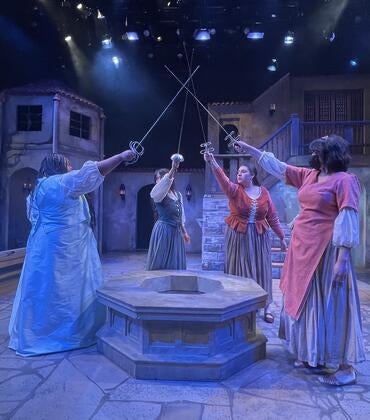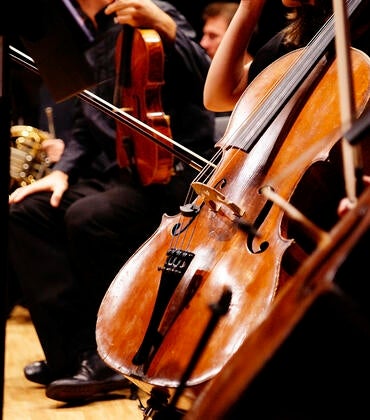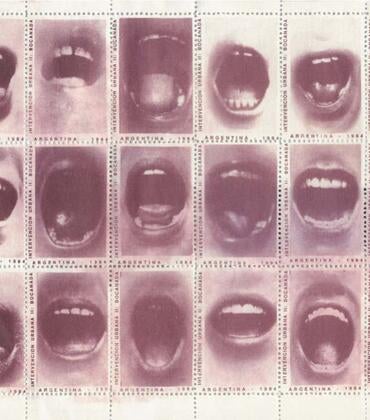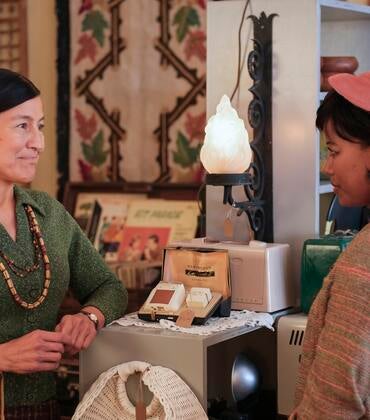With every step, Ni’Ja Whitson tells a story.
The assistant professor of dance at the University of California, Riverside, strives to weave culture, history, and storytelling into the performances.
For the second time in Whitson’s career, the artist garnered one of the most prestigious awards in dance, a 2019 Bessie Award for outstanding visual design. The Bessie awards were established in 1984 by David White at Dance Theater Workshop, and are meant to recognize exceptional work in choreography, performance, music composition, and visual design.
The award was for the dance performance piece, “Oba Qween Baba King Baba,” which received three nominations. It was co-commissioned by Danspace Project and Abrons Arts Center in New York. The work embodies Whitson’s African roots, slavery, religion, gender, all of which are weaved together with bits of pop culture.
This is Whitson’s second Bessie award. In 2017 Whitson was part of an ensemble that took home the outstanding performer award.
“To be recognized by a very vibrant community and nominated in multiple categories is a huge honor,” said Whitson, who identifies as a nonbinary/transgender artist whose pronouns are they/them/theirs. “The nomination is really the award.”
A selection committee comprised of artists, presenters, producers, designers, and writers choose the Bessie nominees.
Whitson created, directed, and choreographed “Oba Qween Baba King Baba,” which designed for an audience that sits above floor level. During the performance, projected lighting illuminates the floor with constellations, a colorful geographic map of Africa, and images of dancers that move throughout the floor as live performers dressed in beige, white, and black garments take center stage to rhythms of hip-hop, classical, and jazz music. A portion of the performance also includes live musicians.
“Oba Qween Baba King Baba” unfolds in the form of a ritual. The story moves the audience through an ancestral narrative that involves religious acts, sounds, and recorded conversations. From above, the audience can appreciate bodies clad in costumes designed by Whitson and Jeanne Medina, inspired by armor and warrior uniforms of ancient cultures.
“Everything has meaning,” said Whitson, who has studied indigenous African rituals for two decades, including with elders and practitioners of Ifa tradition, a religious and spiritual tradition that originated with the Yoruba people of western Africa. Over the years, Whitson’s work has also been influenced by street dance, rapper Kendrick Lamar, gender, sexuality, race, spirituality, and the African diaspora.
“For this performance, I want the audience to feel like they are in the sky; I want them to see the sky below them and feel as if they are wrapped in sacred, cosmic love,” Whitson said.
Whitson is teaching two a classes this fall quarter, one of which includes a DJ and guest performers who share with students the story and purpose behind their art. Exposing students to this means fulfilling Whitson’s own purpose.
Whitson, who grew up in Ohio, said their mother and grandmother had music in their veins and danced every chance they had. But it wasn’t until college when Whitson saw Arthur Avilés, a gay, man of color and performing artist, that they felt validated. Soon after, Whitson sought the support of mentors, as they discovered their passion and connected with their African culture.
For Whitson, earning two Bessies does not signal a culmination of their career.
“It is still settling in that this has happened. I don’t take it lightly to be awarded as a black, nonbinary person,” Whitson said. “I’m excited about the possibilities going forward, about helping those coming behind me.”
It’s these types of rich, personal experiences that connect UCR faculty members with students, said Milagros Peña, dean of the College of Humanities and Social Sciences.
“Our students are fortunate to work alongside faculty such as Ni’Ja Whitson,” Peña said. “Ni’Ja’s Bessie award speaks to the preeminence our dance faculty possess.”



